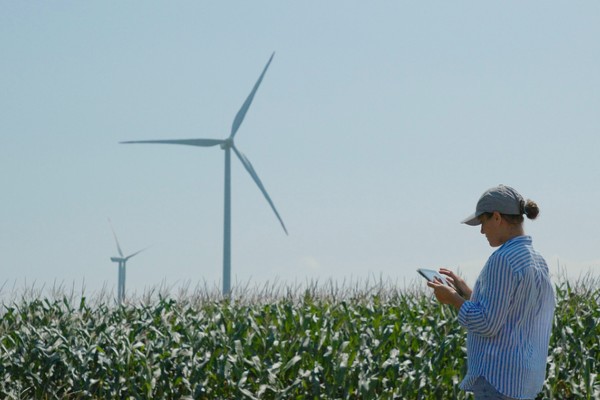
U.S. Labor Department Removes Barriers to ESG Investing by Retirement Plans
On November 22, 2022, the U.S. Department of Labor (DOL) announced a final rule that rolls back a Trump-era prohibition on environmental, social and governance (ESG) investing by retirement plans. The 2020 rule prevented retirement plan fiduciaries from considering ESG factors when selecting investments, even though those factors often offer financial benefits.
The new rule, which covers pension funds that collectively invest $12 trillion on behalf of 150 million Americans, follows Executive Order 14030, signed by President Biden on May 20, 2021. EO 14030 directs federal agencies to develop policies that protect the savings and pensions of American workers and their families from risk related to climate change.
Congressional Republicans passed a bill on March 1, 2023, overturning the DOL rule. President Biden vetoed it on March 20, 2023, the first veto of his presidency.
Republicans contend that ESG investing is “woke capitalism” that prioritizes liberal ideology over maximizing returns to investors. Proponents say that ESG investing improves returns by evaluating a company’s sustainability and considering future risk factors such as climate change impacts.
Restrictions on ESG Investment
The administration of private-sector employee benefit plans is governed by the Employee Retirement Income Security Act (ERISA). Title I of ERISA establishes minimum standards for the plan operation, including fiduciary responsibilities. Plan managers are required to perform their duties in a prudent manner and make investment decisions for the exclusive benefit of plan participants and beneficiaries. These fiduciary responsibilities extend to decisions related to proxy voting and the exercise of other shareholder rights.
The DOL has long held that plan managers may not sacrifice returns or assume greater risks to promote social policy objectives, but they are not prohibited from making investment decisions that consider ESG factors. However, the Trump-era rule published on November 13, 2020, amended ERISA’s “Investment Duties” to require fiduciaries to consider only “pecuniary factors” when making investment decisions. Pecuniary factors are expected to have a “material effect” on investment risk or returns based on the fiduciary’s prudent determination.
Furthermore, the rule prohibited plans from holding any investment as a qualified default investment alternative (QDIA) if the investment included even one non-pecuniary objective. A final rule published on November 16, 2020, extended these requirements to proxy voting and the exercise of shareholder rights but stated that fiduciaries are not required to exercise every proxy vote or shareholder right.
Eliminating the ‘Chilling Effect’ on ESG
Under the Biden Administration, the DOL evaluated the prior rule and determined that it created a chilling effect on ESG investing even if consideration of ESG factors would benefit the plan. The final rule published on November 22, 2022, broadens the definition of risk-return considerations to explicitly include ESG factors and removes the requirement to base the analysis on pecuniary factors only. Fiduciaries are given the discretion to determine whether ESG-focused investments are prudent and to consider plan participants’ preferences without violating the duty of loyalty.
The final rule removes language that treated QDIAs differently than other types of investments. It also eliminates the statement that fiduciaries are not required to exercise every proxy vote or shareholder right, reaffirming the DOL’s position that fiduciaries should vote proxies unless it’s not in the plan’s best interests. To that end, the final rule eliminates safe harbors and recordkeeping requirements that could encourage fiduciaries to abstain from voting.
Continued Battles at the State Level
Republicans were unable to overturn the DOL rule, but have waged an all-out war on ESG investing at the state level. At least seven states have passed laws or regulations prohibiting state investment boards and other public entities from considering non-pecuniary factors when making investment decisions. Some also prohibit investments in financial products that follow ESG standards. At least eight states have passed laws prohibiting state entities from doing business with companies that boycott or discriminate against the fossil fuel or firearms industries.
Similar efforts have received significant pushback in other Republican-led states. Kansas dropped the toughest version of its anti-ESG bill due to criticism from bankers’ associations and state chambers of commerce. The milder version of the bill also faced opposition from the head of the state’s pension fund, who said it could cause billions of dollars in losses and force the firing of all investment managers. Legislative researchers in Indiana similarly warned of significant losses to the state’s pension fund.
ESG practices have become pervasive among some of the world’s largest investment firms. The U.S. SIF’s most recent biennial report identified $8.4 trillion in U.S. sustainable investment assets under management as of the beginning of 2022.
Still, given the uncertainty associated with continued Republican attacks on ESG investing practices, fiduciaries would be wise to document the reasoning they use to evaluate ESG factors in case decisions are challenged in the future. In particular, they should take advantage of the new rule’s emphasis on investment horizons and objectives to show how ESG investments may increase returns and reduce risk over the long term.
Keep Informed on Developing Issues in Law
Legal issues are always at the forefront of news. It’s important to stay current with legal developments in California and the rest of the nation with Purdue Global Law School.
Purdue Global Law School offers an online Juris Doctor if you wish to become an attorney licensed in California. If you wish to advance your legal education but do not intend to become a practicing attorney, you may consider an online Executive Juris Doctor.
Single law courses are also available to help you explore a particular area of law without committing to a full degree program. Request more information today.

